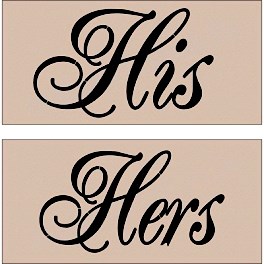
Trevor Todd and Jackson Todd have over 60 years experience in estate litigation and specialize in wills variation claims
The ability of the court to consider assets passing outside of the estate in a wills variation claim and has been recognized since Inch v Stead estate 2007 BCSC 1249.
The court in Inch stated:
“Although inter vivos dispositions, and assets passing as a result of a right of survivorship pass outside the estate and are thus not subject to a claim under the wills variation act, (now Section 60 WESA), the court can consider them when assessing, from the perspective of a judicious person, in the circumstances whether a will maker has met his or her moral obligations.
In today’s world of estate planning many deceased individuals have resorted to using inter vivos gifts are trust, beneficiary designations on their various pension plans and insurance policies, and assets that are held in a true joint tenancy.
All of these types of assets are not in the estate of the deceased and thus are not subject to a wills variation claim as only assets in the estate can be subject to such a claim.
The consideration of non-estate assets, that is assets passing outside of the estate, was approved by the BC Court of Appeal in Ekford v Van Der Woude Estate 2014 BCCA 261, where the court in a short-lived later in life relationship, with previous children from early her relationships, found that the joint tenancy ownership in the matrimonial home that passed to his surviving spouse, was adequate provision to the surviving spouse.
The deceased’s estate was relatively modest and his largest asset was the joint tenancy interest in the matrimonial home in which he and his partner lived. His will made no provision for the spouse, and the court approach the matter in a broad range review of acceptable estate plans.
The appeal court refused to vary the trial judge’s conclusion that given the length of the relationship, the fact that the surviving spouse was not a dependent spouse, and the competing moral claims of his adult children, that the testator’s disposition of his jointly owned assets to his wife was within the wide range of options that could be considered appropriate in the circumstances.
Wong v Cheung estate 2015 BCSC 1741 is another example of a relatively short late in life marriage where the court, carefully took into account assets that were previously owned by each party, what each party contributed to the relationship, and the $800,000 that passed outside of the deceased’s estate, which was valued at approximately $1.4 million.
The court considered both assets within the estate on the same footing as the non-estate assets.
Despite the fact that the will made no provision for Mr. Wong, he did receive $90,000 as proceeds from an insurance policy, as well as entitlement to a survivor’s pension following his wife’s death.
The court ruled that adequate provision for the claiming husband would have been 25% of the total assets, that is assets that pass through her estate, as well as the assets that passed outside of the estate.
The court also took into account a GIC that the claimant husband owned but which the court found was in fact the matrimonial asset, as well as the insurance proceeds. These proceeds were deducted from his 25% entitlement in the estate, which was $350,000 of the $1.4 million in the estate.




